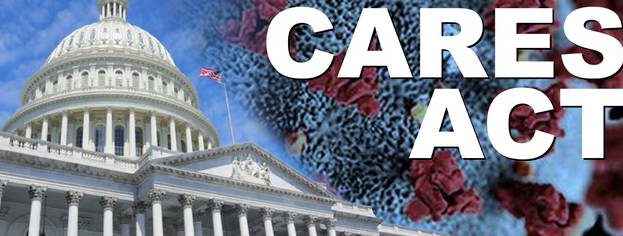17th Apr 2020

Estimated reading time: 4 minutes
The recently passed CARES Act (Coronavirus Aid, Relief, and Economic Security Act) has gotten a lot of publicity in the media, largely for its provision pushing back the income tax deadline from April 15 to July 15, the promise of $1,200 recovery rebates to individual taxpayers, and the availability of forgivable loans to small businesses. Although not as widely touted, there is also some economic relief with respect to retirement accounts.
Individuals who have reached age 70 1/2 are familiar with the requirement that they must take Required Minimum Distributions (RMDs) from retirement accounts and pay income tax on the distribution. The government tells you that you must withdraw a certain amount from your retirement accounts each year based on your age and the value of those accounts at December 31 of the prior year, so that the government can collect income tax on this minimum amount.
Times were good in 2019. Retirement account values were up. RMDs for 2020 were up as well, and then came this pandemic. Retirement account values dropped, but RMDs did not. The withdrawal of RMDs based on high December 2019 values would have a disproportionate and potentially adverse impact on retirement account values.
The CARES Act eliminates the requirement to take RMDs for 2020. This applies to both inherited IRAs and retirement accounts of those who have reached age 70 1/2. Of course, if you need your RMD, you are free to take it and pay income tax on the withdrawals as usual. However, if you do not need your RMD in 2020, you are not required to take it. This may allow your retirement account value some time to recover. If you already took your RMD for 2020 you may be able to redeposit it and treat it as a rollover, so long as you redeposit it within 60 days of withdrawal.
If you have reached age 70 1/2 the CARES Act does not change your ability to use retirement distributions to make a Qualified Charitable Distribution (QCD) in 2020. To qualify as a QCD the funds must be distributed from your retirement account directly to charities. A QCD is not included in your taxable income. And in these tough economic times, charities will need these funds more than ever.
The CARES Act also provides relief to those who need to tap into their retirement accounts but have not yet reached age 59 1/2. You may withdraw up to $100,000 from your retirement accounts withoutu incurring the usual 10% penalty. This withdrawal is available if you, your spouse, or a dependent has been diagnosed with SARS-CoV-2, or COVID-19 as determined by a test approved by the CDC, or if you suffer adverse financial consequences from the pandemic due to quarantine, furlough, layoff, reduction of work hours, or inability to work due to lack of child care. Keep in mind that you must still pay income tax on the amount you withdraw. However, you may spread that tax burden over three years. You may re-contribute the amount withdrawn within three years without concern that the amount re-contributed will cause you to exceed the annual contribution cap. If you paid income tax on the amount withdrawn and then re-contribute, you can amend your income tax return to recover the tax on the amount you re-contribute.
If you do not qualify under the provision allowing withdrawal due to adverse financial consequences from the pandemic, the CARES Act allows you to take a loan of up to $100,000 from your 401k. This is double the maximum amount allowed before enactment of the CARES Act. Because it is a loan, there is no penalty or tax imposed on the amount. Generally, you must repay the amount with interest within five years. However, the CARES Act suspends repayment for one year.
Before taking a loan or withdrawal from your retirement account, you should consult with your tax adviser to make sure you are fully informed as to the consequences of the withdrawal.
Written by Katherine B. Albrecht
IRS Information on Coronavirus Related Relief for Retirement Accounts and IRAs


